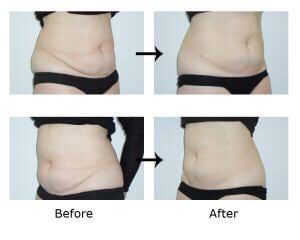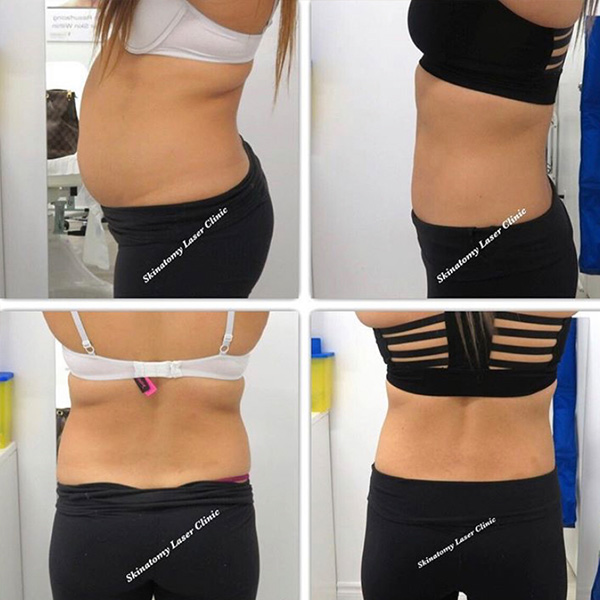Understanding Lipolytic Injections
Lipolytic injections, commonly referred to as fat-dissolving injections, are a revolutionary solution that can help you achieve your desired body shape. These injections directly target and break down the stubborn fat cells in specific areas of your body, making it easier for your body to eliminate them naturally. This article will provide you with an insightful overview of lipolytic injections, including how they work, their benefits, and what to expect during the treatment. So, if you're looking for an effective way to enhance your body contours without invasive procedures, keep reading to discover the wonders of lipolytic injections.
Understanding Lipolytic Injections
Lipolytic injections are a type of cosmetic procedure used to target and reduce stubborn fat in specific areas of the body. This non-surgical treatment works by breaking down fat cells and stimulating the body's natural fat-burning process. Lipolytic injections have gained popularity in recent years as a safe and effective alternative to surgical procedures such as liposuction.
Definition
Lipolytic injections, also known as fat-dissolving injections, are a non-surgical cosmetic procedure that uses various substances to break down and eliminate fat cells in targeted areas of the body. These injections are typically administered by a medical professional and are often used to reduce excess fat in areas such as the abdomen, thighs, hips, and chin.
How Lipolytic Injections Work
The process of lipolysis, or the breakdown of fat, is the key mechanism behind lipolytic injections. These injections contain lipolytic agents that work to disrupt the structure of fat cells, allowing them to be metabolized and eliminated by the body. The injected substances interact with the cell membranes of fat cells, causing them to rupture and release their contents. This results in the gradual reduction of fat in the treated areas.

Types of Lipolytic Injections
There are several types of lipolytic injections available, each using different substances to achieve the desired fat-reduction results. Some common types include:
-
Phosphatidylcholine and Deoxycholate (PCDC): This combination of chemicals is the most widely used lipolytic injection. Phosphatidylcholine acts as a fat-dissolving agent, while deoxycholate enhances the breakdown and elimination of fat cells.
-
L-Carnitine Injections: L-Carnitine is an amino acid that plays a key role in the transport of fatty acids into cells for energy production. L-Carnitine injections can help boost the metabolism of fats and aid in the breakdown of stubborn fat deposits.
-
Aqualyx Injections: Aqualyx is a water-based solution that contains a detergent compound called sodium deoxycholate. This solution is injected into localized fatty deposits, causing the fat cells to break down and be removed by the body's lymphatic system.
-
Other Lipolytic Agents: There are various other lipolytic agents used in injections, such as phosphatidylinositol and pinoxaden. These substances work in a similar way to disrupt fat cells and promote their elimination.
Benefits of Lipolytic Injections
Lipolytic injections offer a range of benefits for individuals looking to reduce stubborn fat deposits without undergoing invasive surgical procedures. Some of the key advantages include:
-
Reduction of Stubborn Fat: Lipolytic injections are specifically designed to target and eliminate stubborn fat that is resistant to diet and exercise. This makes them an effective option for individuals who struggle to lose fat in certain areas of the body.
-
Non-surgical Fat Removal: Unlike liposuction and other surgical procedures, lipolytic injections are minimally invasive and do not require incisions or general anesthesia. This means less downtime and a lower risk of complications.
-
Enhancement of Body Contour: Lipolytic injections can help improve the shape and contour of the body by reducing excess fat in specific areas. This can lead to a more proportionate and aesthetically pleasing physique.
-
Improved Self-confidence: Many individuals experience a boost in self-confidence and body image after undergoing lipolytic injections. The reduction in stubborn fat can lead to increased satisfaction with one's appearance and improved overall well-being.

Considerations Before Getting Lipolytic Injections
Before undergoing lipolytic injections, it is important to consider certain factors to ensure a safe and successful treatment. These considerations include:
-
Consultation with a Medical Professional: A consultation with a trained and experienced medical professional is crucial before undergoing any cosmetic procedure. They will assess your suitability for lipolytic injections, discuss your goals, and address any concerns or questions you may have.
-
Understanding the Risks: While lipolytic injections are generally safe, it is important to be aware of the potential risks and complications associated with the procedure. These can include bruising, swelling, infection, and uneven fat reduction.
-
Realistic Expectations: It is essential to have realistic expectations about the results of lipolytic injections. While they can significantly reduce fat in targeted areas, they may not lead to a complete transformation. Your medical professional will discuss the expected outcomes based on your individual circumstances.
-
Health and Medical History Assessment: Your medical professional will evaluate your overall health and medical history to determine if you are a suitable candidate for lipolytic injections. Certain medical conditions or medications may affect your eligibility for the procedure.
-
Allergies and Sensitivities: Informing your medical professional about any allergies or sensitivities you have is crucial to avoid adverse reactions to the injection substances. They will take this into consideration during the treatment planning process.
Procedure for Lipolytic Injections
The procedure for lipolytic injections typically involves the following steps:
-
Preparation and Planning: Before the injections, your medical professional will assess the target areas, discuss your goals, and plan the treatment approach. They may mark the areas to be treated and take photographs for comparison.
-
Anesthesia and Numbing Agents: In most cases, lipolytic injections are performed using a local anesthetic to numb the treatment area. This helps minimize discomfort during the procedure.
-
Injection Techniques: Using a fine needle, the lipolytic solution is injected directly into the fat layer of the targeted area. The number of injections and the amount of solution used will vary depending on the individual and the area being treated.
-
Treatment Duration: The duration of the treatment session can vary depending on the size and number of areas being treated. Typically, each session takes between 30 minutes to an hour.
-
Patient Comfort and Support: Your medical professional will ensure that you are comfortable throughout the procedure. They may provide additional support or guidance during the injections to minimize any discomfort or anxiety.

Post-Injection Care
After receiving lipolytic injections, it is important to follow proper post-injection care instructions for optimal results. Some key aspects of post-injection care include:
-
Monitoring and Follow-up: Your medical professional may schedule follow-up appointments to monitor your progress and assess the effectiveness of the treatment. They may also provide additional instructions or recommendations based on your individual recovery process.
-
Pain Management: You may experience mild discomfort or soreness in the treated areas after the injections. Over-the-counter pain relievers or prescribed medications may be recommended to manage any pain.
-
Activity Restrictions: It is advised to avoid vigorous physical activities or strenuous exercise for a certain period following the injections. Your medical professional will provide specific guidelines regarding activity restrictions and the duration of these restrictions.
-
Potential Side Effects: Some common side effects of lipolytic injections can include redness, swelling, bruising, and tenderness in the treated areas. These symptoms are usually temporary and should resolve within a few days to weeks.
-
Avoidance of Certain Medications and Treatments: Your medical professional may advise you to avoid certain medications or treatments during the recovery period to minimize the risk of complications or interference with the desired effects of the lipolytic injections.
Potential Side Effects
While lipolytic injections are generally safe, there are potential side effects that individuals should be aware of before undergoing the procedure. These can vary depending on factors such as individual response, injection technique, and the specific lipolytic agents used. Some potential side effects include:
-
Common Side Effects: Common side effects of lipolytic injections can include swelling, bruising, redness, tenderness, and temporary numbness in the treated areas. These symptoms are usually mild and resolve on their own within a few days to weeks.
-
Rare Side Effects: Rare side effects can include infection, scarring, uneven fat reduction, allergic reactions, and damage to underlying structures. These complications are uncommon but can occur in some cases.
-
Allergic Reactions and Complications: While rare, allergic reactions to the lipolytic agents used in the injections can occur. Signs of an allergic reaction can include severe swelling, difficulty breathing, rash, or hives. Immediate medical attention should be sought if any allergic reactions are experienced.

Results and Recovery
The results of lipolytic injections can vary depending on factors such as the individual's body and metabolism, the specific lipolytic agents used, and the number of treatment sessions. It is important to keep in mind that lipolytic injections are not a quick fix for weight loss, but rather a targeted approach to reducing stubborn fat deposits.
Many individuals start to see visible results within a few weeks after the initial treatment, with further improvements over the following months as the body continues to metabolize and eliminate the treated fat cells. Multiple treatment sessions may be required to achieve the desired results.
The recovery period after lipolytic injections is generally minimal, with most individuals able to resume their normal activities shortly after the procedure. However, it is important to follow any post-care instructions provided by your medical professional to ensure optimal healing and minimize the risk of complications.
Conclusion
Lipolytic injections can be an effective and safe option for individuals looking to reduce stubborn fat deposits in specific areas of the body without undergoing surgery. These non-surgical treatments work by breaking down fat cells and stimulating the body's natural fat-burning process. However, it is important to consult with a qualified medical professional and carefully consider the potential risks and benefits before undergoing the procedure. By understanding the mechanism of action, types of lipolytic injections, benefits, considerations, and post-injection care, individuals can make informed decisions and achieve personalized results.
Useful Resources:
https://www.quora.com/What-are-lipolytic-injections-and-how-do-they-work/answer/Foxy-Beauty-2
https://www.linkedin.com/pulse/lipolytic-injections-comprehensive-guide-foxy-beauty-mnc2e/
https://medium.com/@getitadm/lipolytic-injections-an-introduction-and-overview-fcef397da84c






